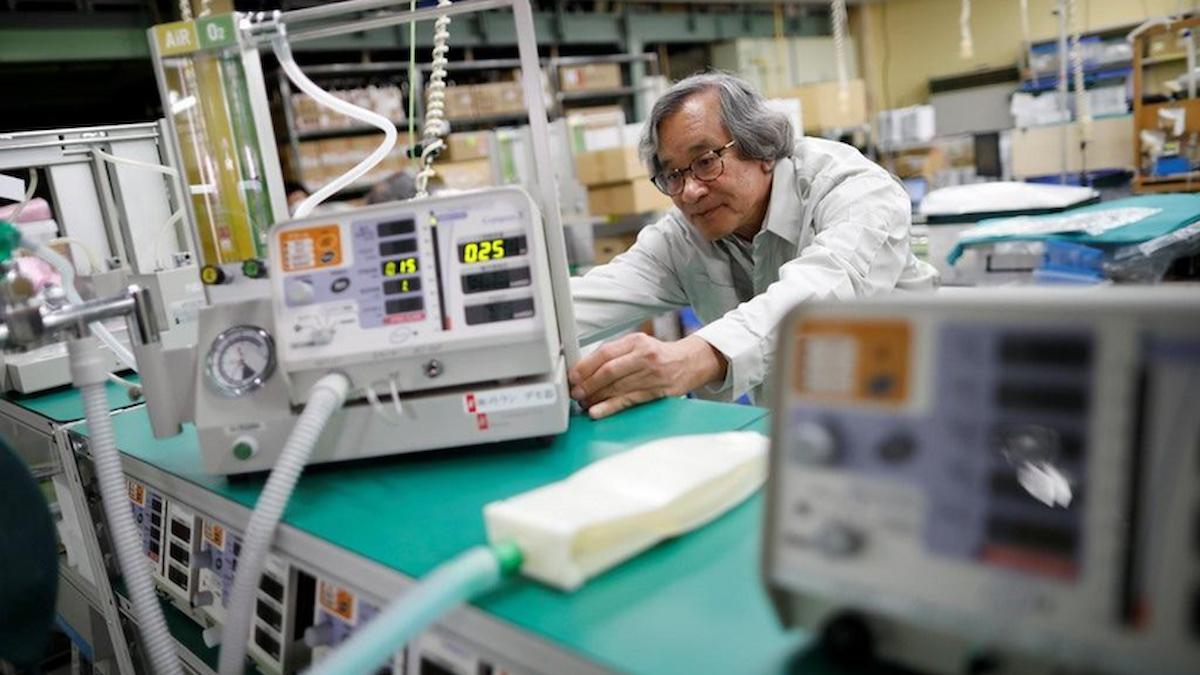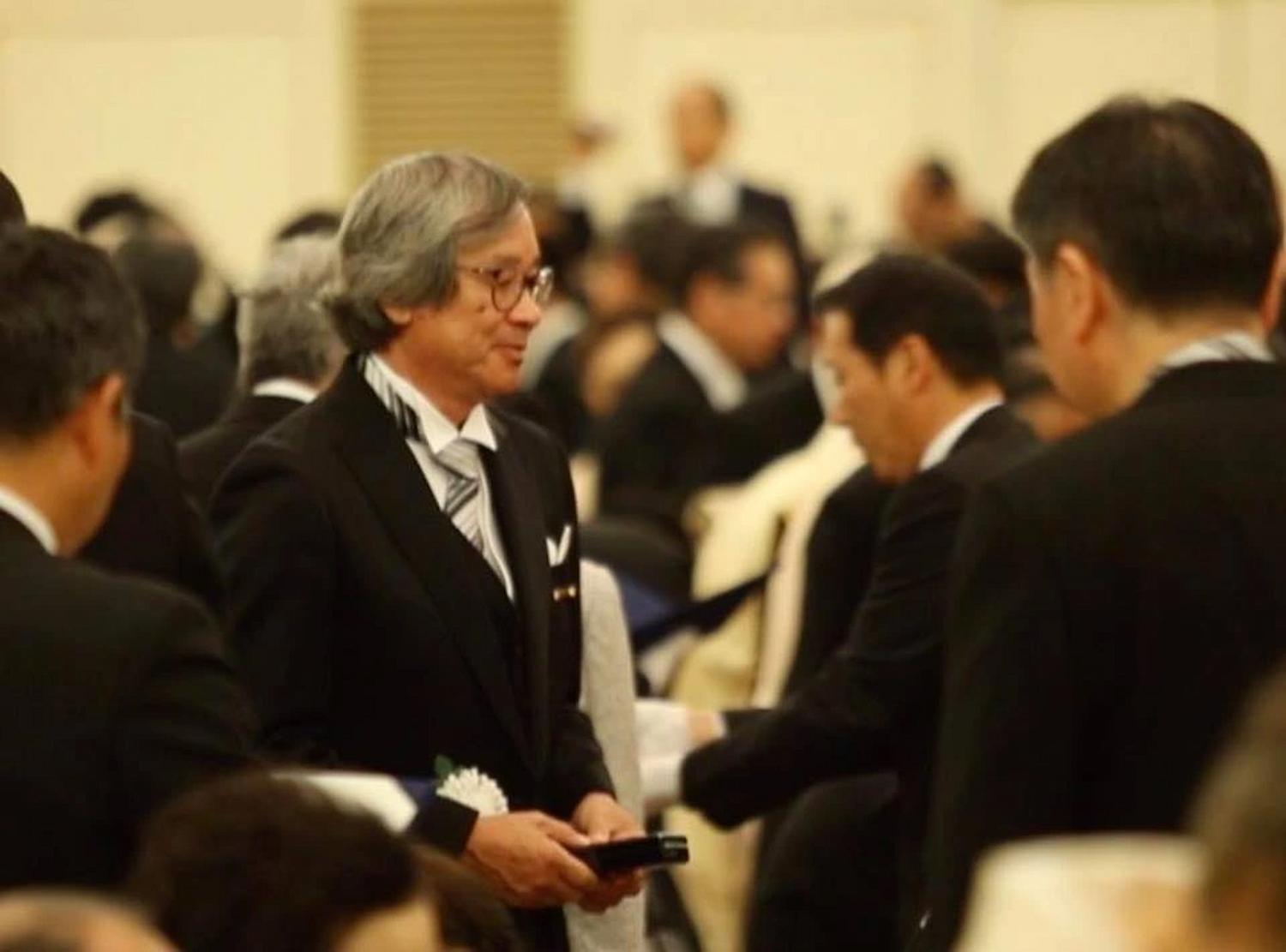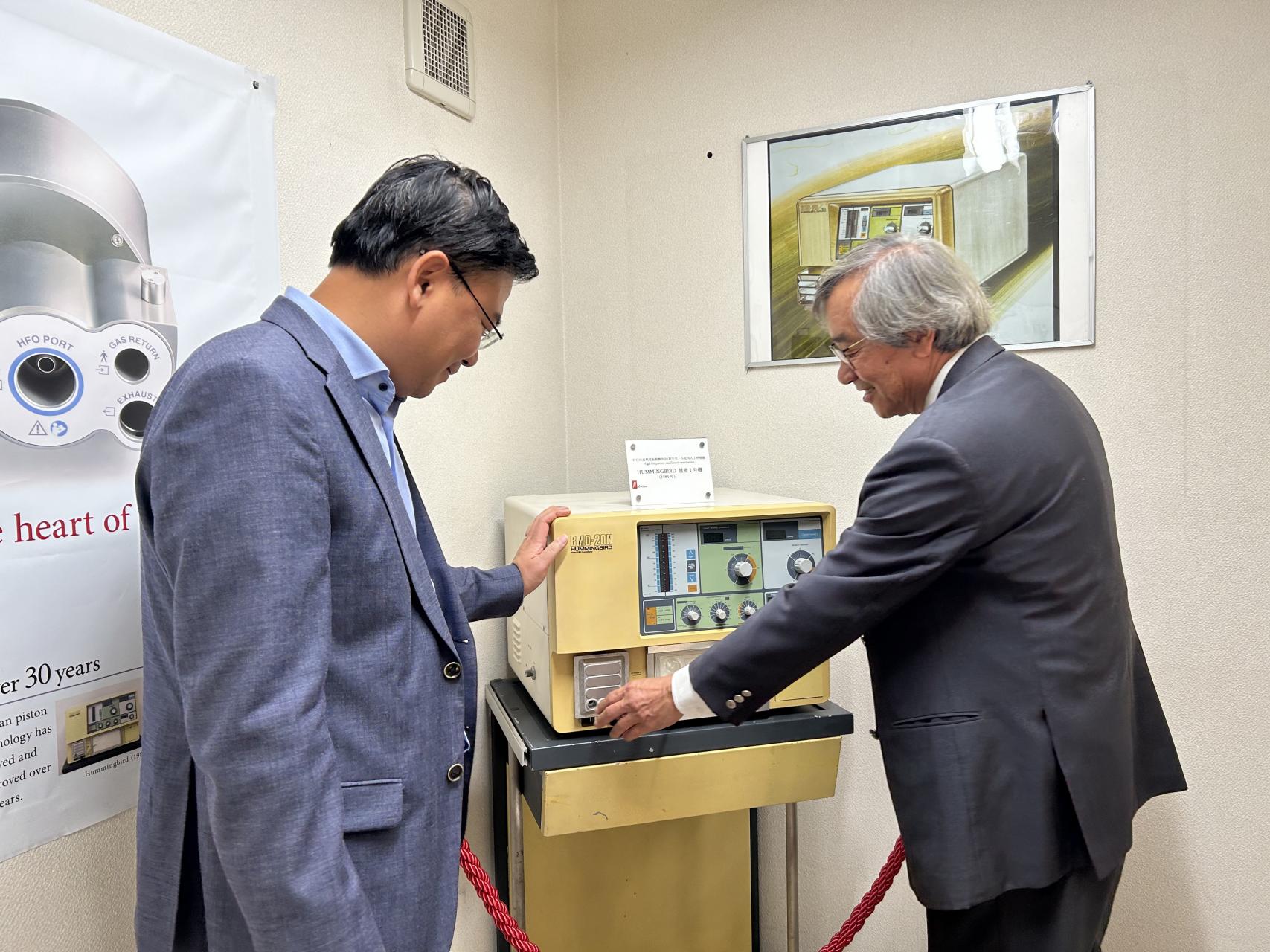I had the chance to sit down with him and listen to the journey of a Vietnamese living abroad who chose to dedicate his life to a mission that serves humanity. His story reflects a clear sense of Vietnamese identity - in his commitment, kindness, and thoughtful intellect.
This article was contributed by Bao Vi.
Choosing What Others Avoid
The story begins in 1968, when 21-year-old Phuc left Hue to study in Japan. What seemed like a bold step of youth opened a path even he could not have foreseen. After graduating as an engineer from Tokai University, he joined a Japanese medical equipment company, where he discovered both his passion and his life’s work.
Rather than taking the usual path, he immersed himself in so-called “3K jobs” — kitsui (hard), kitanai (dirty), and kiken (dangerous). Dialysis machines, blood freezing, and especially ventilators for newborns; high-risk fields that even major corporations shied away from.
That choice made all the difference. In 1982, his invention, the high-frequency oscillatory ventilator (HFO), nicknamed the Hummingbird - won first prize at a U.S. National Institutes of Health (NIH) competition and was recognized by Harvard University. Before the Hummingbird, premature infants under one kilogram had virtually no chance of survival because conventional ventilators pumped too much air, often tearing fragile lungs.
The Hummingbird worked differently: instead of normal inhale-exhale cycles, it generated high-frequency oscillations, sending tiny volumes of air into the lungs in a continuous “vibration.” This spared delicate tissue from damage. The technology is considered one of modern medicine’s breakthroughs.
Where others hesitated, we Vietnamese dared to try, dared to act.

A Generation That Chose To Venture
That courage was not his alone. It reflected the spirit of an entire generation of Vietnamese students in Japan, bound by the ideal of “going abroad to return.”
His group of classmates agreed: if one studied this field, another would choose a different one, so together they could complement each other and better serve their country. It was more than a youthful promise; it was a shared longing of those far from home.
Later, circumstances led their lives in different directions. Some returned, others stayed abroad. For Mr. Phuc, conditions kept him in Japan, though the desire to return never faded.
Even so, the promise endured. Today, in their seventies, the group still gathers annually, rotating between the U.S., France, Germany, Vietnam, and beyond. These reunions are not only moments of nostalgia, but proof of enduring friendship and a national spirit that has never dimmed across distance or time.
Breaking Down The “Guest” Mindset
Assimilating into Japanese society was never easy, especially as a foreigner. For Mr. Phuc, the greatest barrier was not the language itself, but the invisible wall of being seen and seeing himself as a guest.
“You must erase the mindset of being a guest,” he often said. To survive and grow, one must compete, contribute, and work with sincerity.
He believed that no matter how fluent his Japanese, he would still be seen as a foreigner. The most effective language, he realized, was not words but technology and contribution.
“Not dissolving into sameness, but defining oneself by the unique value one can bring.”

Career Turning Points
That philosophy became a guiding thread through the turning points of his life.
In 1984, he left his company to found Metran. His capital was his family’s entire savings, about 6.5 million yen, pooled from pensions, savings, and loans. He made a quiet vow: either create devices that set a standard for patients, or do nothing at all.
As a leader, he entrusted design work to Vietnamese engineers. Not from favoritism, but conviction: it was the fastest way to establish the role of Vietnamese talent abroad.
Few know that after winning its prize, the HFO remained slow to spread. Early trials in the U.S. were rushed, with clinical teams unprepared for the new technology. The delay lasted nearly 20 years. Yet in Japan, through careful testing and refinement, the Hummingbird eventually became standard in most neonatal intensive care units.
Vietnamese Identity That Endures
Phuc’s career was marked by unforgettable milestones. In 2012, Emperor Akihito personally visited Metran, a rare honor for a company founded by a foreigner. Four years later, he received the Order of the Rising Sun, Silver Rays, recognizing his contribution to Japanese medicine through the invention of the HFO ventilator.

And yet, in daily life, his rituals remain simple:
“Every day, when I look up at the family altar, I greet my parents in Vietnamese.”
When asked about “the Vietnamese spirit in Japan,” his reply was simple: “Because I am Vietnamese.”
A Life Still In Motion
His path was never straight, but full of turns: anesthetic machines, pacemakers, dialysis, blood freezing, artificial lungs… then the HFO Hummingbird, and later home respiratory care devices.
At 78, Mr. Phuc - former CEO of Metran and founder of Magos - still spends most of his time in the lab. Fifty years ago, he was the young man from Hue who dared to enter the fields the Japanese avoided. That choice made him one of the leading medical inventors of his time, honored by both the Emperor and the Japanese government.
If the HFO gave premature babies their first breath, his latest projects aim to ease the final breaths of the elderly and those with chronic lung disease.
A lifetime devoted to breathing, Phuc found his scientific path in Japan, while keeping his Vietnamese identity alive in the simplest daily gestures.
For those who believe Vietnamese identity can shine anywhere, Phuc’s journey is proof. At Vietcetera Open 2025, he will appear in the fireside Elevating Vietnam's Global Standing Through Professional Success, where two generations of leaders will share how they built careers and earned recognition in Japanese corporate culture.
Register HERE to be part of the journey.Returning to Tokyo with a brand-new look after its debut in September 2024, Vietcetera Open is more than just a gathering space. It offers meaningful connections, practical opportunities, and tangible value for the Vietnamese community in JapVi, while also contributing to the global visibility of Vietnam’s national brand.
(1) Conference
- Time: 13:00 – 17:00 (JST) | September 27, 2025
- Place: 4F Akasaka Intercity Conference Center, 1-8-1 Akasaka, Minato-ku, Tokyo
(2) Networking Reception
- Time: 18:00 – 21:00 (JST) | September 27, 2025
- Place: Two Dogs Taproom, ARIES Bld. 2F, 3-15-24 Roppongi, Minato-ku, Tokyo
Special thanks to our sponsors & partners for accompanying us in this event:- Title Sponsor: FPT Japan- Program Sponsor: Reazon Holdings, Money Forward & Tokyo Corporation- Engagement Partner: Vilasia- Travel Partner: Vietjet Air- Strategic Partner: Solara & Co- Communications Partner: VANJ - Vietnamese Academic Network in Japan, VYSA (Vietnamese Youth and Student Association in Japan), Cộng đồng DHS Đông Du, Overseas Vietnamese, FTU Alumni in Japan & Legacy Brand.
